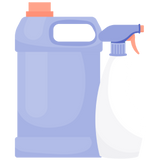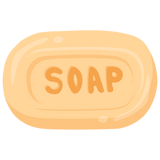
What to Know About Your Skin Barrier and How to Protect It
Posted by Pankaj Dhiman on Apr 1st 2024
In the bustling world of skincare, it's easy to get caught up in the latest trends and miracle ingredients. But amidst the serums, creams, and masks, there's one crucial element often overlooked: your skin barrier. Understanding this fundamental aspect of your skin is key to achieving and maintaining a healthy complexion. In this comprehensive guide, we'll delve into what your skin barrier is, why it's essential, what can damage it, and most importantly, how to protect and restore it.
Must Read: Top 5 Cardinal Health Foley Catheters for 2024
What’s Your Skin Barrier and What Purpose Does It Serve?
Your skin barrier, also known as the epidermal barrier, is like a protective shield that guards against environmental stressors, bacteria, and moisture loss. It consists of several layers, with the outermost layer primarily composed of skin cells held together by lipids (fats). This lipid barrier acts as a barrier to keep water in and harmful substances out, maintaining optimal skin hydration and overall health.
Must Read: 10 Best Medical First Aid Kits in US (2024)
What Can Damage Your Skin Barrier?
Several factors can compromise the integrity of your skin barrier, leading to issues such as dryness, sensitivity, and inflammation. Common culprits include:
- Harsh Cleansers: Stripping away natural oils with harsh cleansers disrupts the skin's pH balance and compromises its protective barrier.
- Over-Exfoliation: Excessive exfoliation can strip away the outer layer of skin, weakening the barrier and leaving it susceptible to damage.
- Environmental Factors: Exposure to UV radiation, pollution, harsh weather conditions, and dry indoor air can all take a toll on your skin barrier.
- Poor Diet: A diet lacking in essential nutrients, particularly those that support skin health like vitamins A, C, and E, can weaken the skin barrier.
- Stress: Chronic stress can trigger inflammation in the body, which can manifest as skin issues and compromise the skin barrier.
Must Read: Balanced Diet: Definition, Importance, Benefits & Diet Chart
The Role of the Acid Mantle
The acid mantle is a thin, protective film on the skin's surface created by the secretion of sweat and sebum (skin oil) combined with natural bacteria. It has a slightly acidic pH, typically ranging from 4.5 to 5.5, which helps inhibit the growth of harmful bacteria and fungi while maintaining the skin's hydration levels. Disruption of the acid mantle, often caused by alkaline skincare products, can lead to a weakened skin barrier and various skin problems.
How Can You Tell If Your Skin Barrier Is Damaged?
Recognizing signs of a compromised skin barrier is crucial for timely intervention and prevention of further damage. Common indicators include:
- Dryness: Your skin feels tight, rough, or flaky, indicating a lack of hydration.
- Redness and Irritation: Persistent redness, itching, or sensitivity may signal inflammation and barrier dysfunction.
- Increased Sensitivity: Your skin becomes more reactive to skincare products or environmental triggers.
- Breakouts: A weakened barrier can make your skin more prone to breakouts and other blemishes.
Must Read: Protect Yourself from Skin Cancer: Types, Prevention, and Early Detection
How to Protect and Restore Your Skin Barrier
Protecting and restoring your skin barrier requires a multi-faceted approach that addresses both external and internal factors. Here are some expert-recommended tips:
Simplify Your Skincare Routine
Limit the number of products you use and opt for gentle, fragrance-free formulations to minimize the risk of irritation and damage to your skin barrier.
Pay Attention to pH
Choose skincare products with a pH level close to that of healthy skin (around 5.5) to support the acid mantle and preserve the integrity of your skin barrier.
Try a Plant Oil to Replenish Your Skin Barrier
Natural oils like jojoba, rosehip, and argan oil are rich in fatty acids and antioxidants that help strengthen and repair the skin barrier, restoring its protective function.
Look for Formulations That Include Ceramides
Ceramides are lipid molecules naturally found in the skin that play a vital role in maintaining the integrity of the skin barrier. Look for skincare products containing ceramides to help replenish and fortify your skin barrier.
Try Moisturizers Containing Hyaluronic Acid, Petrolatum, or Glycerin
These ingredients help attract and retain moisture in the skin, improving hydration levels and supporting the skin barrier's function.
Must Read: 12 Best-Selling Wound Care Products in the US (2024)
The Bottom Line
Your skin barrier is a vital component of healthy, radiant skin, and understanding how to protect and restore it is essential for skincare success. By adopting a holistic approach that addresses both external and internal factors, you can ensure your skin barrier remains strong and resilient, providing a solid foundation for a glowing complexion.
Must Read: At-Home Drug Tests: What They Are and How They Work
FAQs
Q: Can I repair a damaged skin barrier?
A: Yes, with the right skincare routine and lifestyle changes, you can repair a damaged skin barrier over time.
Q: How long does it take to restore a damaged skin barrier?
A: The time it takes to restore a damaged skin barrier varies depending on the severity of the damage and individual factors. In general, noticeable improvements can be seen within a few weeks to a couple of months with consistent care.
Q: Are there any dietary changes I can make to support my skin barrier?
A: Consuming a balanced diet rich in vitamins, minerals, and antioxidants can support overall skin health, including the function of the skin barrier. Incorporate plenty of fruits, vegetables, healthy fats, and lean proteins into your diet for optimal results.
In conclusion, your skin barrier plays a crucial role in maintaining healthy, radiant skin, and it's essential to give it the attention and care it deserves. By understanding what can damage your skin barrier and implementing strategies to protect and restore it, you can achieve a complexion that looks and feels its best. Remember to keep your skincare routine simple, prioritize products that support the acid mantle, and nourish your skin from the inside out for lasting results.





























































